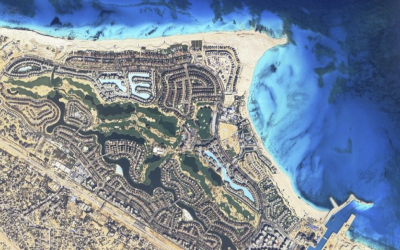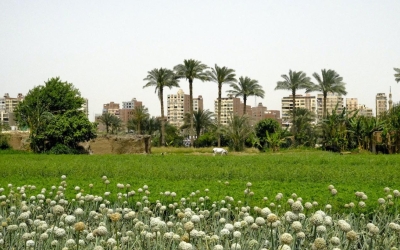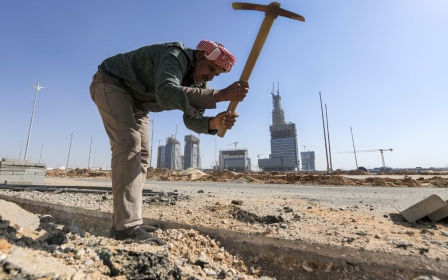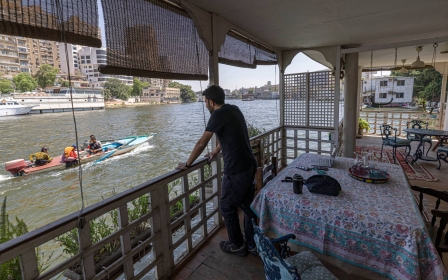Cop27: Egypt creating climate of fear for environmentalists ahead of conference
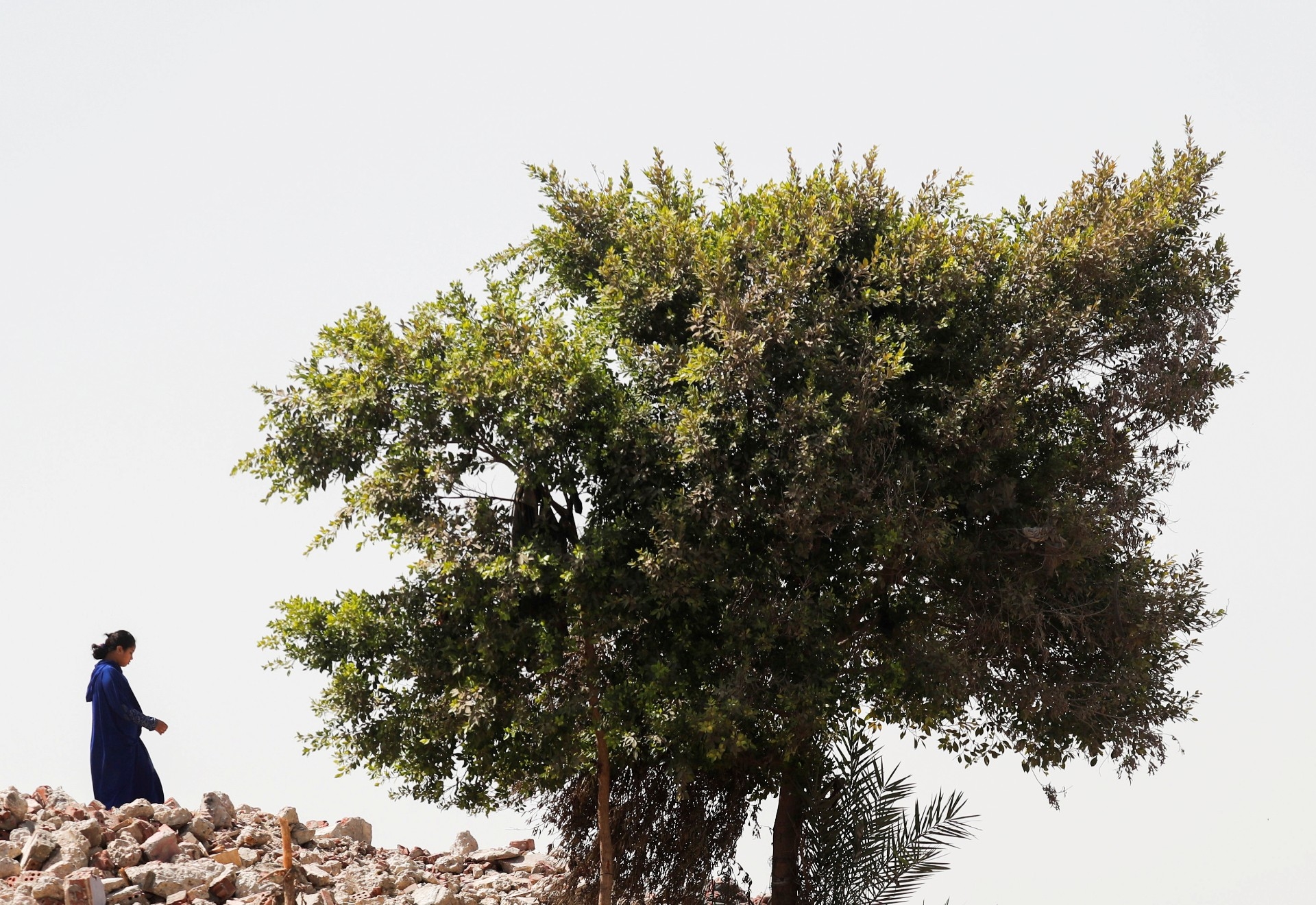
In a stinging report, Human Rights Watch (HRW) on Monday accused the Egyptian government of "severely curtailing" the rights of environmental groups in the country and their ability to carry out their work of protecting the natural environment.
"The Egyptian government has imposed arbitrary funding, research, and registration obstacles that have debilitated local environmental groups, forcing some activists into exile and others to steer clear of important work," said Richard Pearshouse, environment director at HRW.
"The government should immediately lift its onerous restrictions on independent nongovernmental organisations, including environmental groups."
New MEE newsletter: Jerusalem Dispatch
Sign up to get the latest insights and analysis on Israel-Palestine, alongside Turkey Unpacked and other MEE newsletters
The report comes at a sensitive time for Egypt as it prepares to host the United Nations climate change conference, Cop27, in Sharm el-Sheikh in November.
Egypt is making considerable efforts for the conference, including turning Sharm el-Sheikh into a "green city".
Cairo hopes to use the conference to focus the international community's attention on the necessity of offering financial support to African countries so that they can adapt and manage the effects of climate change.
The HRW report, however, casts serious doubt on the government's willingness to take tangible action in the country over climate change.
Intimidation tactics
In a series of interviews with activists, academics, scientists, and journalists, HRW described a prevailing "atmosphere of fear" amongst the non-governmental community of environmentalists in Egypt.
Many would only speak to the human rights organisation anonymously, and several declined to be interviewed, while others cited government restrictions forcing them to stop doing their work.
The activists described a shrinking space for independent environmental and climate work since President Abdel Fattah el-Sisi's government took office in 2014.
Increasingly, activists have reported that the Sisi regime is harassing and intimidating environmental workers, including arresting them in a bid to criminalise their work.
HRW has previously described the Egyptian state as too often treating environmental activists as a threat rather than an asset to the country in an effort to hamper their work.
Conversely, some activists told HRW that where the work of environmental activists reconciled with the government's agenda or did not lead to criticism, there was more tolerance by authorities.
They said authorities are willing to work with activists on technical environmental activities, such as rubbish collection, recycling, renewable energy, food security and climate finance.
Increasingly, "the government adopts radical discourse when it comes to the Global North and its contribution to climate change and carbon emissions, just because this intersects with their interests, like the need for more funds," one person told HRW.
Even as COP27 is approaching, many environmental groups have told HRW that they are cautious about engaging with the climate conference, fearing that the Egyptian security apparatus could crack down once the gathering is over.
"When COP ends, they might start looking and see who is doing what, who got funds from where," one activist told HRW.
Military versus the environment
Much of Egypt's economic activity is interlinked in an opaque web with the military and the Egyptian state, not only making the work of environmental activists dangerous but also making it difficult to understand where accountability lies.
The military's economic tentacles range from engaging in destructive forms of quarrying to water bottling plants and even cement factories, which are also linked with the government's attempt to build a new administrative capital.
Attempts to criticise the impact such projects have on the environment could well be construed as an attack on the country's national security.
"[These national infrastructure projects are] a red line," one person told HRW, adding: "I can't work on this."
In recent years, Sisi's government has increasingly clamped down through legislative measures on the ability of environmental groups to receive donations or grants from foreign or national sources.
These measures have had a chilling impact on the ability of environmentalists to act as a watchdog on the government at a time when the country is becoming increasingly aware of climate change and environmental degradation.
Growing environmental awareness
In August, an Emirati real estate company faced a huge outcry in Egypt after its construction projects in a prime north-coast location caused potentially irrevocable damage to one of the country's most pristine beaches.
Engineers and urban planning experts have warned that Emaar, a United Arab Emirates-based multinational property firm, is embarking on developments threatening the geological make-up of Sidi Abd el-Rahman, a village just over 130km west of Alexandria.
The affected area is part of a new multi-billion dollar summer capital, New Alamein, the construction of which was commissioned by the government.
Where the government has taken action on the environment, in some cases it has been accused of having an ulterior motive.
In preparation for the COP27 summit, the country's largest coke factory, one of the biggest causes of pollution in Cairo, was closed down.
The shutting of the factory, the latest in a series of closures of state-owned factories, has stirred up a wave of anger, with critics arguing that the government, which owns the factory, is closing key businesses needed by the economy.
The government has also been accused of undermining the nationally owned businesses for the benefit of the private sector.
In a sign that environmental concerns are increasingly grabbing the public's attention, works at one of the country's oldest parks in the Mediterranean city of Alexandria has drawn criticism over possible uprooting of trees and a further infringement on public green spaces in Egypt.
Authorities in Alexandria have been quick in seeking to dispel fears about a possible demolition of the gardens. However, their marginalisation of environmental groups left little room for accountability or oversight.
Middle East Eye delivers independent and unrivalled coverage and analysis of the Middle East, North Africa and beyond. To learn more about republishing this content and the associated fees, please fill out this form. More about MEE can be found here.


